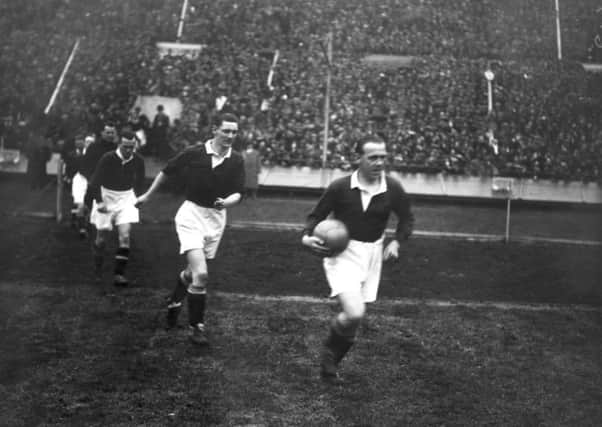Why Scotland would have won the World Cup '“ if only we'd turned up


A new book which mulls over how some of the seminal moments in footballing history could have turned out differently has predicted that Scotland would have triumphed in the inaugural World Cup, if only officials had shown the ambition to take part.
In what is described as a “counterfactual history” of the world’s most popular sport, author Simon Turner believes the national side had the skill, temperament and stamina to triumph in the 1930 tourney. All that was lacking was political will on the part of the Scottish Football Association.
Advertisement
Hide AdAs the record books show, the competition was won by the hosts, Uruguay, who defeated Argentina 4-2 in Montevideo. Yet they were among only 13 teams who took part, just four of whom hailed from Europe.
While several nations stayed clear on account of the prohibitive two-week voyage to South America, Scotland and the rest of the home nations declined having withdrawn from Fifa, the world governing body, amid a dispute over payments to amateur players.
That fateful decision, according to Turner, is one every Scot should rue to this day.
“If Scotland were to have won a World Cup, then 1930 was not just their best chance, it was their only chance,” he explained.
“Not only did they have one of the most talented groups of players that the country is ever likely to produce, but they could also have competed in a tournament which many of the best teams in the world had declined to attend.”
While most members of the Tartan Army believe Scotland’s best chance to win the game’s most coveted trophy came and went with Ally MacLeod in 1978, Turner’s book presents a compelling argument which suggests victory should have been achieved nearly half a century earlier.
Advertisement
Hide AdHis thought-provoking tome, If Only: An Alternative History of the Beautiful Game, points out that the Scotland team at the time boasted some of the world’s best players, such as Hughie Gallacher, a diminutive forward who racked up 24 goals in 20 internationals, and captain Jimmy McMullan.
Together, they formed part of the famous Wembley Wizards side who trounced England 5-1 at Wembley in 1928. Reflecting on what could – or, as he points out, “should” – have been, Turner said: “There was a brief moment in time when Scotland had the world at its feet, but it came and went before they even realised what they had missed.”
If Only: An Alternative History of the Beautiful Game, is published by Pitch Publishing.